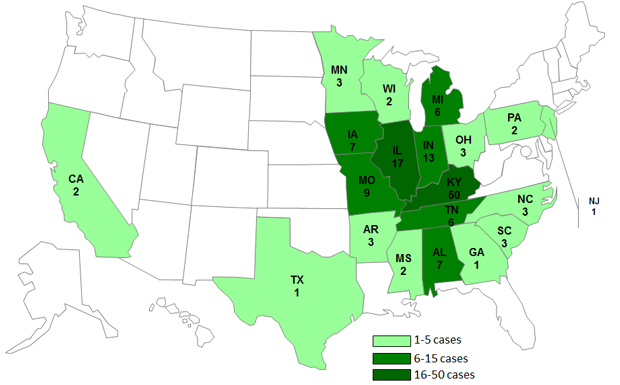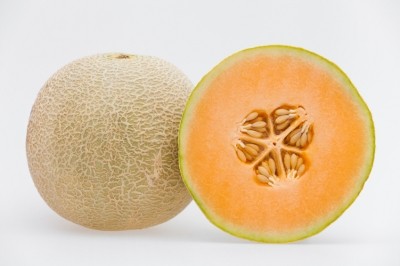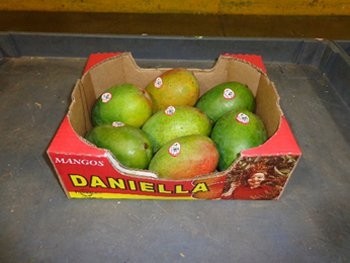Deadly US Salmonella Typhimurium outbreak linked to cantaloupes

A collaborative investigation – involving officials from the US Centers for Disease Control and Prevention (CDC), the US Food and Drug Administration (FDA) and public health officials in several states - has pinpointed cantaloupes grown on a farm in south west Indiana as a likely source of the outbreak.
The farm in question is withdrawing its cantaloupes from the market, and has vowed to cease distribution for the rest of the season.
The outbreak will do no favours for the already tainted reputation of US-produced cantaloupes.
In 2011, 146 people were sickened across 28 states and 30 died in an outbreak of listeriosis caused by Listeria monocytogenes-contaminated produce. The outbreak was traced back to cantaloupes produced and distributed by Colorado-based Jensen Farms.
On-going investigation
“Epidemiologic, laboratory, and traceback investigations conducted by officials in local, state, and federal public health, agriculture, and regulatory agencies indicate that cantaloupes grown in south western Indiana are a likely source of this outbreak of Salmonella Typhimurium infections,” said a CDC statement.
Kentucky has been worst hit by the outbreak – with 50 cases of illness reported in the state to-date.
Cases of infection have also been reported in Alabama (7), Arkansas (3), California (2), Georgia (1), Illinois (17), Indiana (13), Iowa (7), Michigan (6), Minnesota (3), Missouri (9), Mississippi (2), New Jersey (1), North Carolina (3), Ohio (3), Pennsylvania (2), South Carolina (3), Tennessee (6), Texas (1) and Wisconsin (2).
Of those infected, 31 have been hospitalised and two have died.
As part of the on-going investigation, a number of victims were questioned on the food they consumed and other exposures in the week before becoming ill.
Eighteen of the 24 ill persons interviewed reported eating cantaloupe in the week before their illness began.
“As a result of the initial investigations by the state health departments in Indiana and Kentucky, a farm in south western Indiana has contacted its distributors, which reach outside Indiana into other states, and is withdrawing its cantaloupe from the market place. The farm has agreed to cease distributing cantaloupe for the rest of the growing season,” the CDC statement added.
No connection
The recall is the second to be initiated in the US in the last month relating to potentially-contaminated cantaloupes.
Last week, North Carolina-based Burch Equipment expanded an initial recall to include all cantaloupes and honeydew melons it produced this season. The products were withdrawn over concerns they may be contaminated with Listeria monocytogenes – the deadly pathogen that led to the 2011 Jensen Farms cantaloupe-associated outbreak.
The CDC has added that there is no connection between the current Salmonella Typhimurium outbreak and the 2011 Jensen Farms listeriosis outbreak.
“There is no connection between this Salmonella outbreak and the 2011 multistate outbreak of listeriosis linked to while cantaloupes from Jensen Farms, Colorado," said the CDC statement.
















